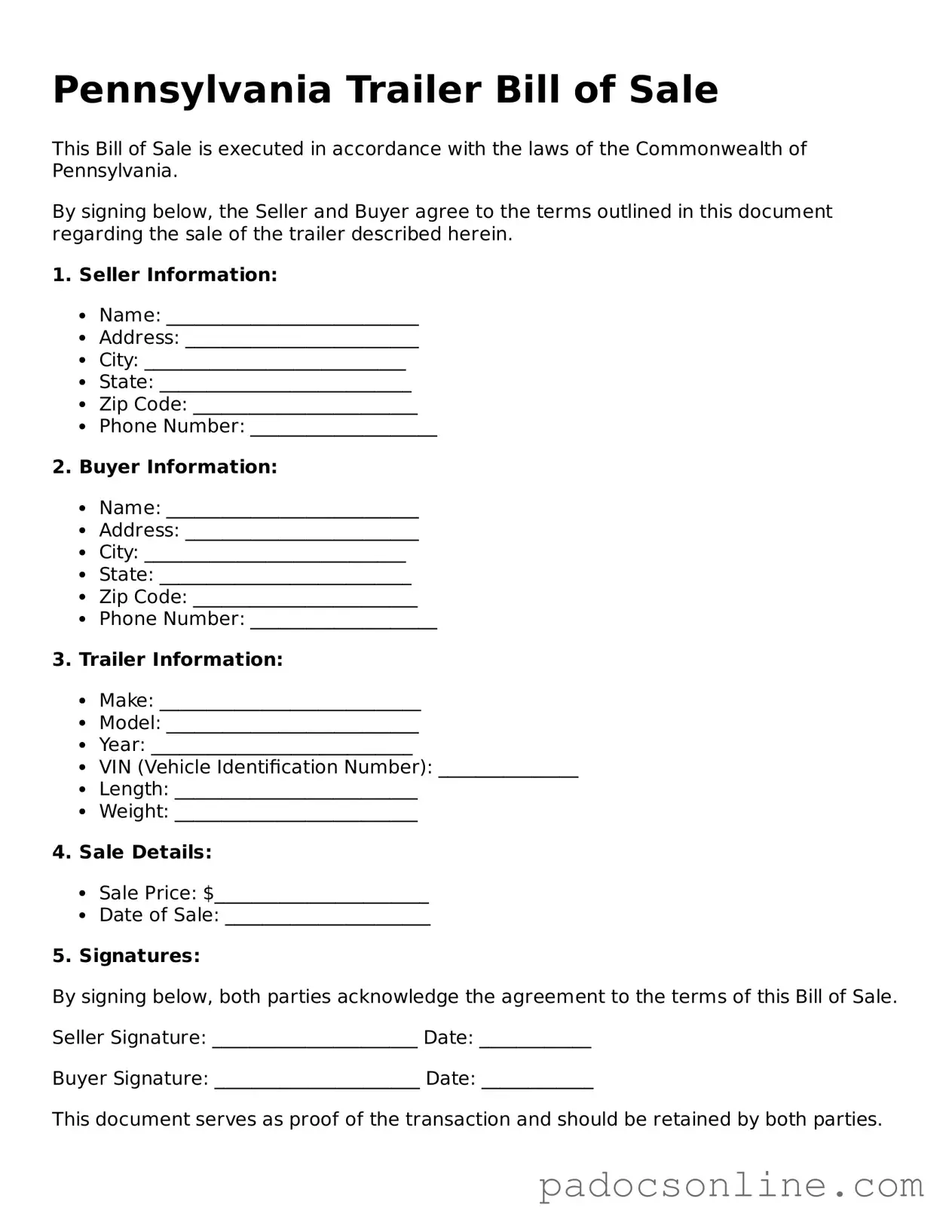When filling out the Pennsylvania Trailer Bill of Sale form, many people make common mistakes that can lead to complications later. One frequent error is leaving out essential information. Buyers and sellers must provide complete details, including names, addresses, and the trailer's Vehicle Identification Number (VIN). Omitting any of this information can create confusion and delays in the registration process.
Another mistake is failing to accurately describe the trailer. It's important to include details such as the make, model, year, and color. Inaccuracies can lead to disputes or issues when transferring ownership. Always double-check this information before submitting the form.
Some individuals neglect to sign the form. Both the buyer and seller must sign the Bill of Sale for it to be valid. Without signatures, the document does not hold legal weight. Remember, a simple oversight can invalidate the transaction.
Additionally, people often forget to date the Bill of Sale. Including the date is crucial, as it establishes when the sale occurred. This information can be important for both parties, especially for tax purposes or in case of future disputes.
Using incorrect payment methods is another common mistake. Ensure that the payment method is clearly stated in the Bill of Sale. If cash is exchanged, note the amount. If a check is used, indicate that as well. Clarity on payment helps prevent misunderstandings.
Some sellers fail to disclose any liens or encumbrances on the trailer. It is vital to be honest about any existing loans or claims against the trailer. Not doing so can lead to legal issues down the line, and it is best to be upfront about the trailer’s status.
Another frequent error involves not providing a copy of the Bill of Sale to the buyer. Both parties should retain a copy for their records. This serves as proof of the transaction and can be helpful in the future if any questions arise.
Lastly, people sometimes overlook the importance of checking local regulations. Different counties or municipalities may have specific requirements for trailer sales. Researching these requirements ensures compliance and smooth processing of the sale.
